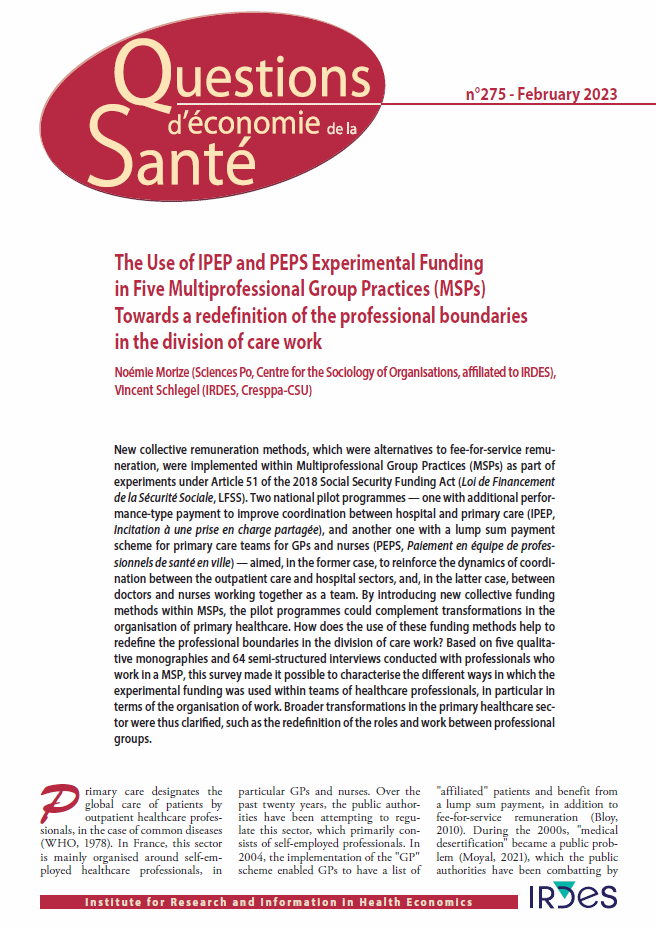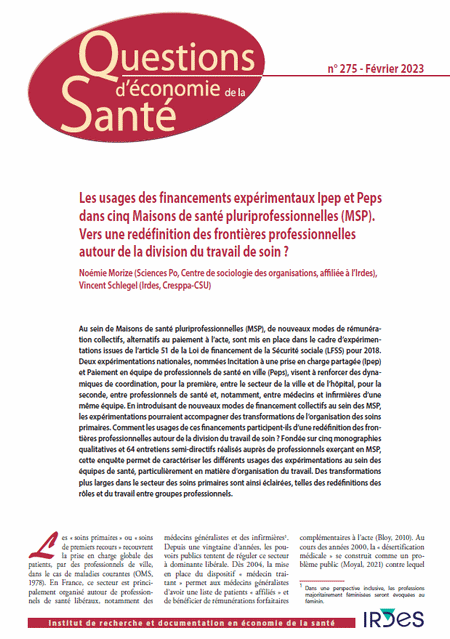The Use of IPEP and PEPS Experimental Funding in Five Multiprofessional Group Practices (MSPs)
Towards a redefinition of the professional boundaries in the division of care work
Morize N. (Sciences Po, Centre for the Sociology of Organisations, affiliated to IRDES), Schlegel V. (IRDES, Cresppa-CSU)
Questions d'économie de la santé (Issues in Health Economics) n° 275 - February 2023
ABSTRACT
New collective remuneration methods, which were alternatives to fee-for-service remuneration, were implemented within Multiprofessional Group Practices (MSPs) as part of experiments under Article 51 of the 2018 Social Security Funding Act (Loi de Financement de la Sécurité Sociale, LFSS). Two national pilot programmes - one with additional performance-type payment to improve coordination between hospital and primary care (IPEP, Incitation à une prise en charge partagée), and another one with a lump sum payment scheme for primary care teams for GPs and nurses (PEPS, Paiement en équipe de professionnels de santé en ville) - aimed, in the former case, to reinforce the dynamics of coordination between the outpatient care and hospital sectors, and, in the latter case, between doctors and nurses working together as a team. By introducing new collective funding methods within MSPs, the pilot programmes could complement transformations in the organisation of primary healthcare. How does the use of these funding methods help to redefine the professional boundaries in the division of care work? Based on five qualitative monographies and 64 semi-structured interviews conducted with professionals who work in a MSP, this survey made it possible to characterise the different ways in which the experimental funding was used within teams of healthcare professionals, in particular in terms of the organisation of work. Broader transformations in the primary healthcare sector were thus clarified, such as the redefinition of the roles and work between professional groups.
See also Questions d'économie de la santé n° 275 in French: Les usages des financements expérimentaux Ipep et Peps dans cinq Maisons de santé pluriprofessionnelles (MSP). Vers une redéfinition des frontières professionnelles autour de la division du travail de soin ?
See also Podcast n° 3 in French: Les soins pour tous, des dispensaires aux centres de santé.

